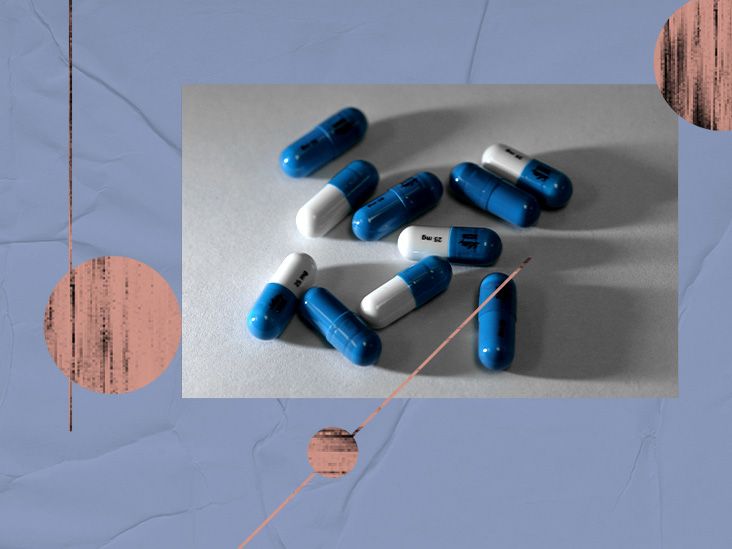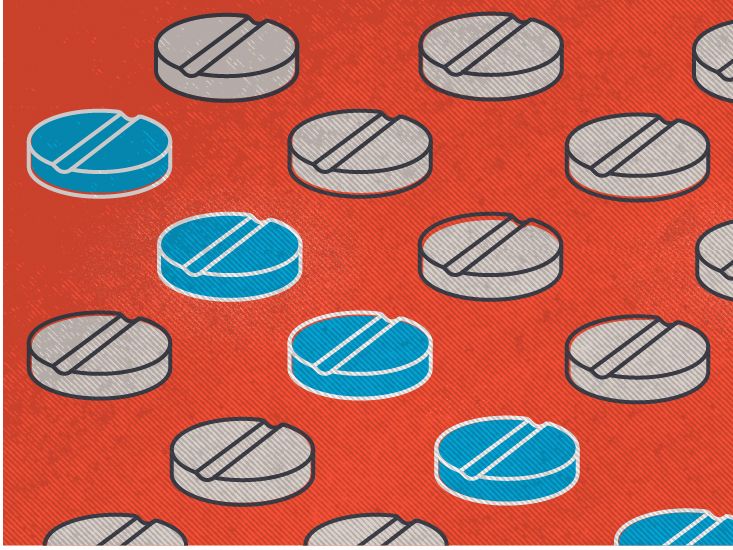Introduction to Methylphenidate
Methylphenidate is a central nervous system stimulant that is most commonly used to treat attention deficit hyperactivity disorder (ADHD) and narcolepsy. The drug goes by several brand names including Ritalin, Concerta, Metadate, and Methylin. It is available in short and long-acting formulations. Methylphenidate is classified as a Schedule II controlled substance by the Drug Enforcement Administration (DEA), meaning it has a high potential for abuse and dependence. However, when taken as prescribed by a doctor, methylphenidate is generally considered safe and effective.
How Methylphenidate Works
Methylphenidate works by increasing the levels of dopamine and norepinephrine in the brain. Dopamine and norepinephrine are neurotransmitters that play an important role in concentration, focus, motivation, and impulse control. For people with ADHD, methylphenidate helps improve these cognitive functions which are impaired by the disorder.
The effects of methylphenidate typically begin within 30 to 60 minutes if taking an immediate-release form. The effects tend to last for 3 to 6 hours. Extended-release versions begin working in 1-3 hours and remain effective for 7 to 12 hours.
How Long Does Methylphenidate Stay in Your System?
The amount of time methylphenidate remains in your system depends on several factors:
1. Dosage
Higher dosages will result in more of the drug accumulating in the body. This means it will take longer to fully clear methylphenidate from your system.
2. Frequency of Use
If methylphenidate is taken frequently or for an extended period, it can accumulate in tissues and remain in the body longer after stopping use.
3. Age and Health
Younger people and those with good kidney and liver function tend to eliminate methylphenidate quicker than older adults or those with kidney/liver issues.
4. Urine pH
Acidic urine causes methylphenidate to be eliminated faster, while alkaline urine keeps more of the drug in the body longer.
5. Metabolic Rate
A faster metabolism usually equates to faster elimination of methylphenidate from the body.
6. Food Intake
Eating aids metabolism and elimination. Fasting or poor nutrition can prolong the retention of methylphenidate.
Methylphenidate Detection Windows
Blood
Methylphenidate can be detected in blood for up to 4 hours after taking an immediate-release dose. The extended-release forms can remain measurable in blood for 8 to 12 hours.
Saliva
Saliva tests can detect methylphenidate for 1 to 4 days after last use.
Hair
Hair follicle tests will be positive for methylphenidate for up to 3 months. However, hair color, ethnicity, dose, and other factors can influence the detection window.
Urine
Urine tests can detect methylphenidate usage for 2 to 4 days after taking short-acting versions. The long-acting forms can produce positive urine screens for 1 to 2 weeks after stopping.
Factors That Affect How Long Methylphenidate Stays in Your System
Many variables account for how long you can expect to test positive for methylphenidate. These include:
Type of Drug Test
The standard 5-panel urine drug tests do not screen for methylphenidate. An extended opiates panel may detect the drug for 2 to 4 days after use. Hair testing can detect occasional or repetitive use for up to 90 days.
Frequency and Dosage
Higher doses taken more often result in greater accumulation and longer detection times. Therapeutic doses taken as prescribed are eliminated faster.
Age
Younger people eliminate methylphenidate quicker than older adults. The average half-life is 2 to 3 hours in kids and up to 5 hours in elderly patients.
Metabolism
People with fast metabolisms tend to clear methylphenidate faster. Those with liver or kidney disease often have reduced clearance.
Fluid Intake
Drinking more fluids can dilute urine and promote faster elimination.
pH of Urine
Acidic urine helps excrete methylphenidate, while alkaline urine retains more of the drug.
Food Intake
Eating speeds metabolism which can shorten detection times. Fasting or malnutrition can prolong excretion.
How to Clear Methylphenidate from Your System Faster
There are several methods that may help flush methylphenidate out of your system more quickly:
Discontinue Use
Stopping methylphenidate is the first step in allowing your body to clear the drug. Each day without use allows more of the medication to be eliminated.
Drink More Fluids
Increasing fluid intake provides more dilution of urine and frequent urination. This helps filter methylphenidate out faster.
Exercise
Engaging in aerobic exercise can increase metabolism and circulation. This aids the body's natural detoxification processes.
Eat Clean, Nutritious Foods
Healthy eating provides nutrients to support the liver and kidneys. A balanced diet also avoids fasting that can slow drug clearance.
Avoid Severe Dieting
Crash dieting or fasting can impair metabolism and retention of methylphenidate. Maintain a stable, nutritious diet.
Consider Detoxification
Some people use detox kits, drinks, or methods to help cleanse the body. However, there is limited evidence on the effectiveness and safety of these products.
The Bottom Line
Methylphenidate is primarily prescribed for ADHD and narcolepsy under medical supervision. When taken correctly, it is unlikely to show up on most standard drug tests after a couple days. However, for people misusing high doses of methylphenidate or taking extended-release versions, urine tests can remain positive for 1 to 2 weeks after stopping. Hair testing can detect repetitive methylphenidate use for up to 90 days.
It is important to be aware of the factors that influence methylphenidate excretion as well as methods that may help clear the drug from your system faster. Preventing buildup in the body by using only as prescribed and staying well-hydrated can keep detection windows to a minimum.
FAQs
How long does methylphenidate stay in your blood?
Methylphenidate can be detected in blood for up to 4 hours after taking an immediate-release dose. The extended-release forms can remain measurable in blood for 8 to 12 hours.
Can methylphenidate be detected in urine?
Yes, urine tests can detect methylphenidate usage for 2 to 4 days after taking short-acting versions. The long-acting forms can produce positive urine screens for 1 to 2 weeks after stopping.
What factors affect how long methylphenidate stays in your system?
Factors like dosage, frequency of use, age, metabolism rate, urine pH, and food intake can all impact how long methylphenidate is detectable in the body.
How can you clear methylphenidate from your system faster?
Methods like discontinuing use, drinking more fluids, exercising, eating clean, and avoiding severe dieting may help flush methylphenidate from your system faster.
Can hair tests detect methylphenidate?
Yes, hair follicle tests will be positive for methylphenidate for up to 3 months. However, hair color, ethnicity, dose, and other factors can influence the detection window.
Disclaimer: This article is for informational purposes only and does not constitute medical advice. Always consult with a healthcare professional before starting any new treatment regimen.
Related Coverage
Cooking yogurt at high temperatures can destroy probiotics. But gentler heating, prompt refrigeration, and certain preparation methods help preserve live cultures....
This article explores whether the popular sports drink Gatorade contains concerning levels of toxic mercury. Learn about Gatorade's ingredients, manufacturing process and how to minimize mercury exposure....
Is Strattera a controlled substance? Get facts on Strattera controlled substance status, its uses, side effects, and how it compares to other ADHD medications....
Research on chocolate and ADHD is inconclusive. While chocolate has caffeine and sugar, it also has brain-healthy antioxidants. Learn whether chocolate is OK for ADHD....
ADHD and perfectionism often go hand in hand. Learn how perfectionism impacts those with ADHD and find practical coping strategies....
Coping with retinol irritation like burning, redness, dryness? Learn how long symptoms last, when to worry, and get aftercare tips to heal skin post inflammation....
ADHD symptoms like poor impulse control and high egocentrism can lead to behaviors viewed as selfish. Treatment and lifestyle changes help manage behaviors....
Research shows PMDD and ADHD commonly co-occur in women due to overlapping symptoms, brain changes, genetics, and hormone fluctuations that worsen both conditions....
See how Concerta works to improve focus and manage ADHD symptoms by balancing key brain chemicals for up to 12 hours....
Adderall shortages make filling prescriptions difficult. Here are tips for finding pharmacies with medication in stock, alternative meds, and coping strategies....









